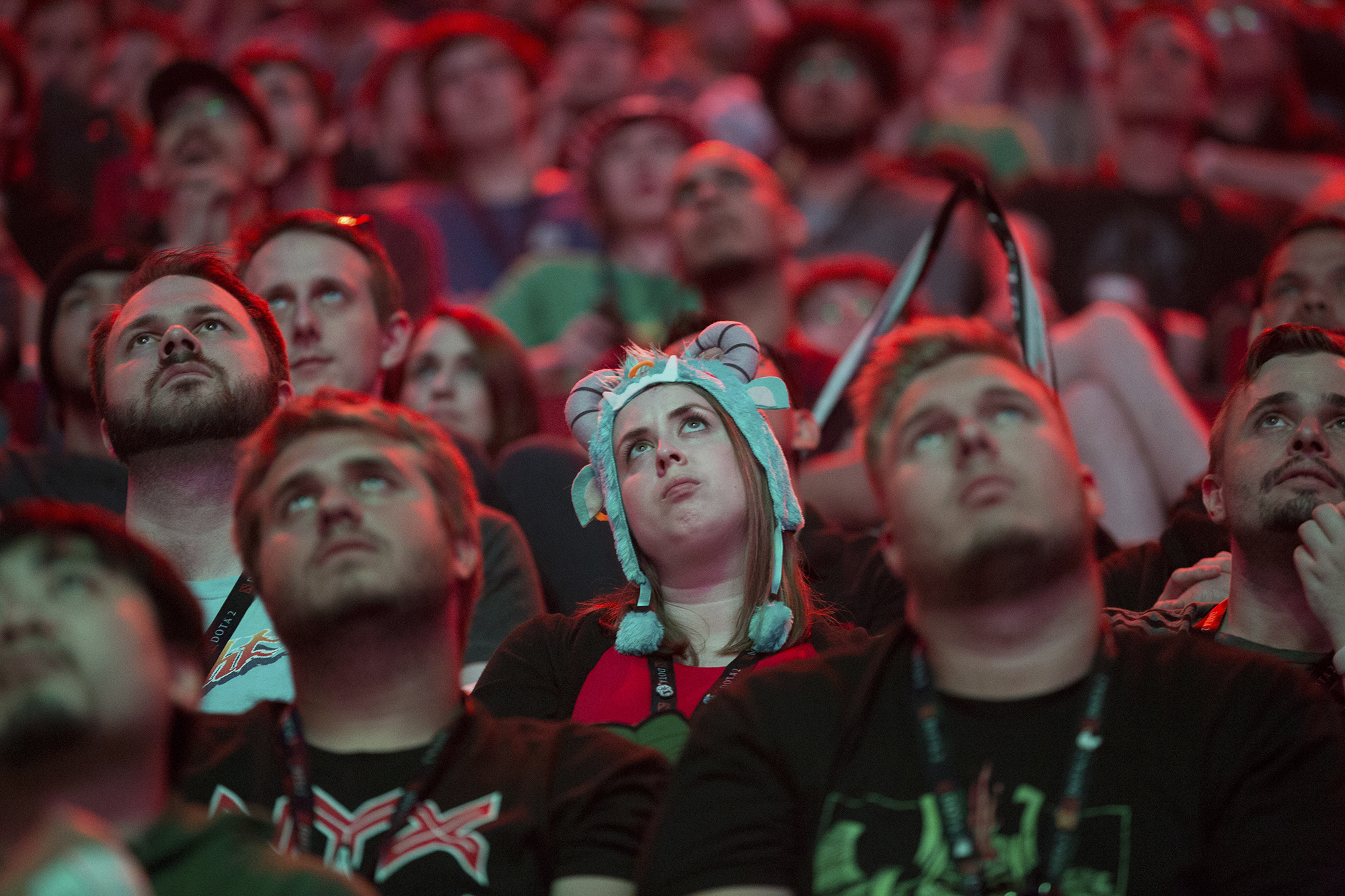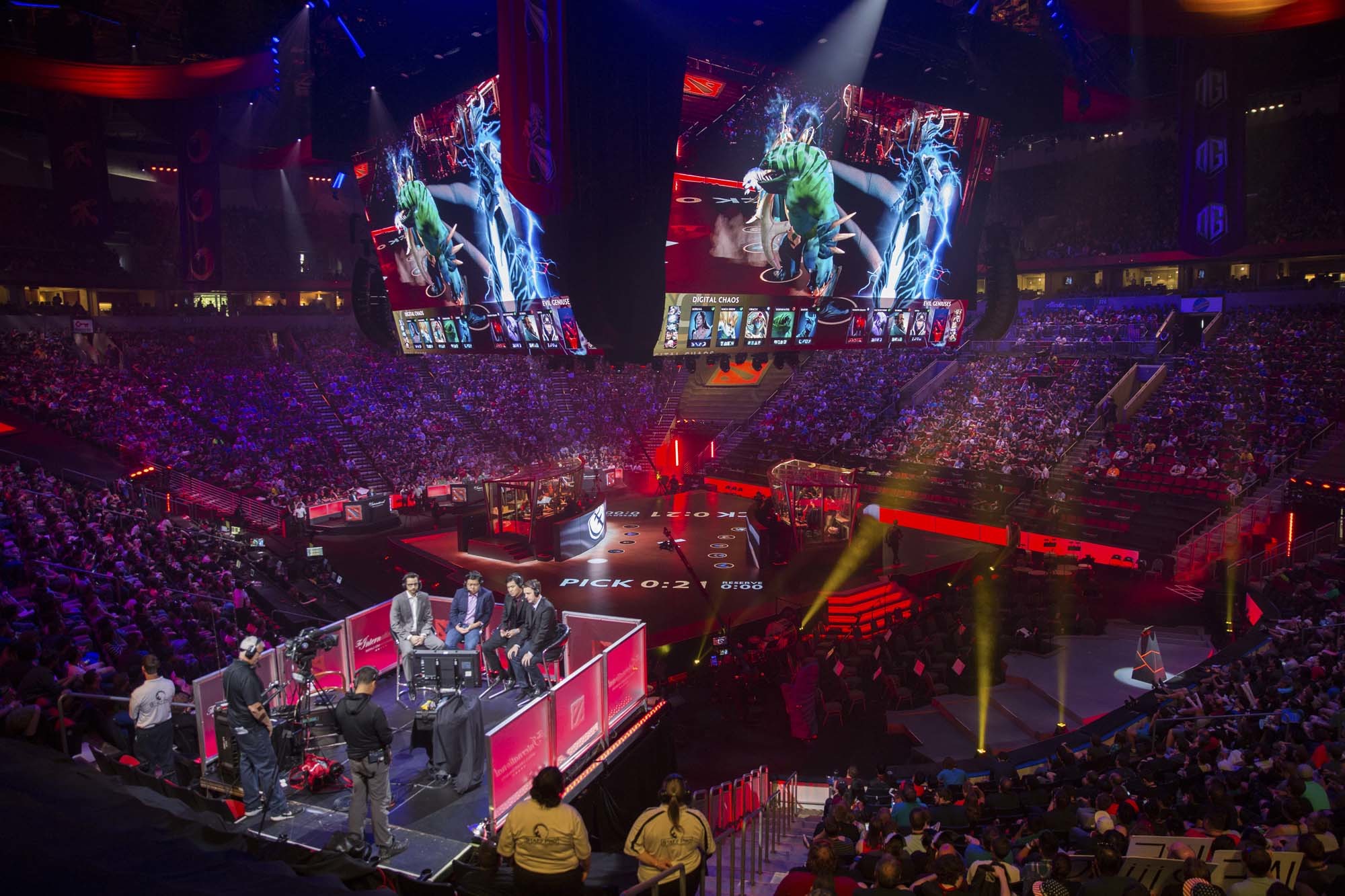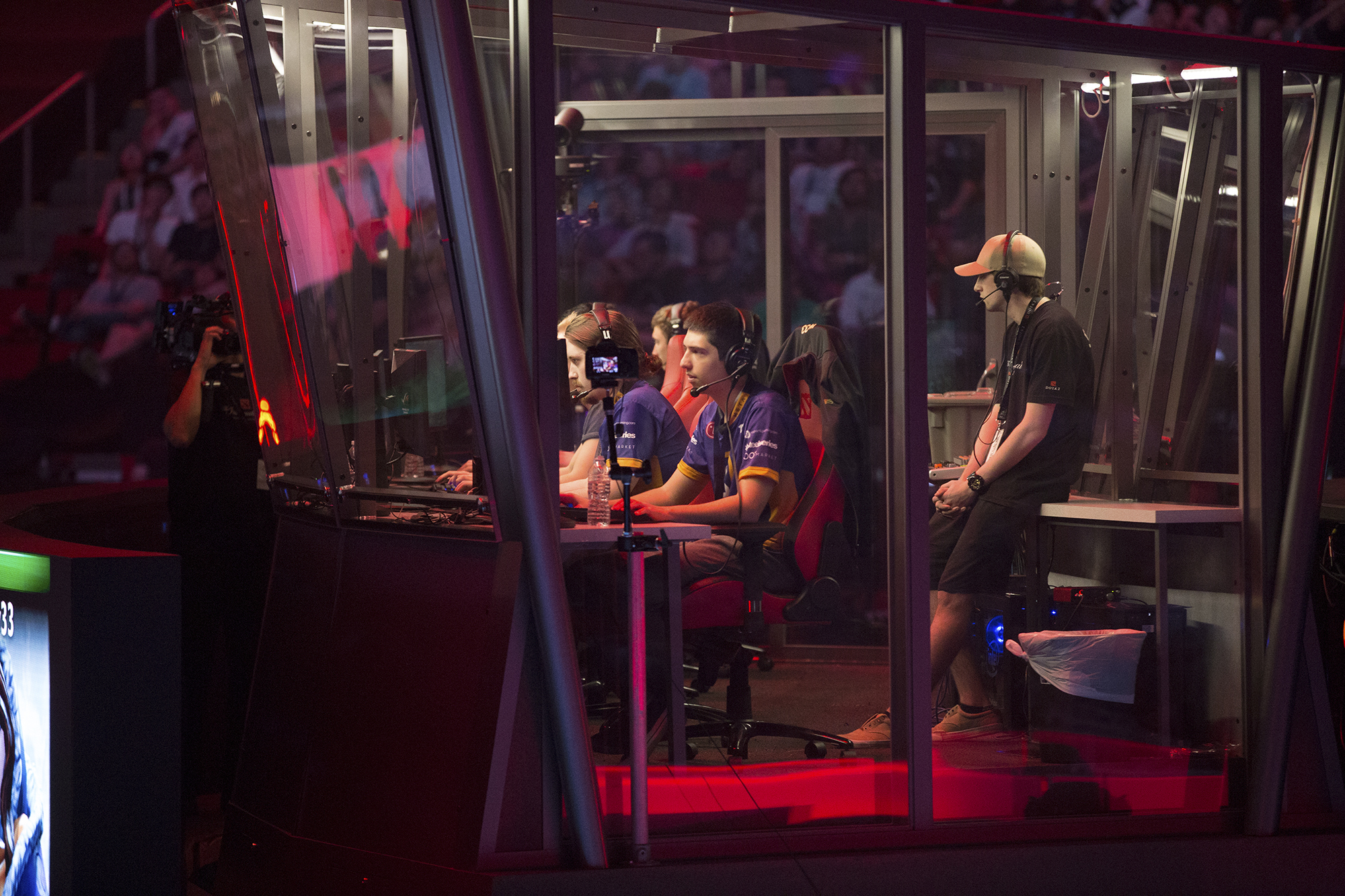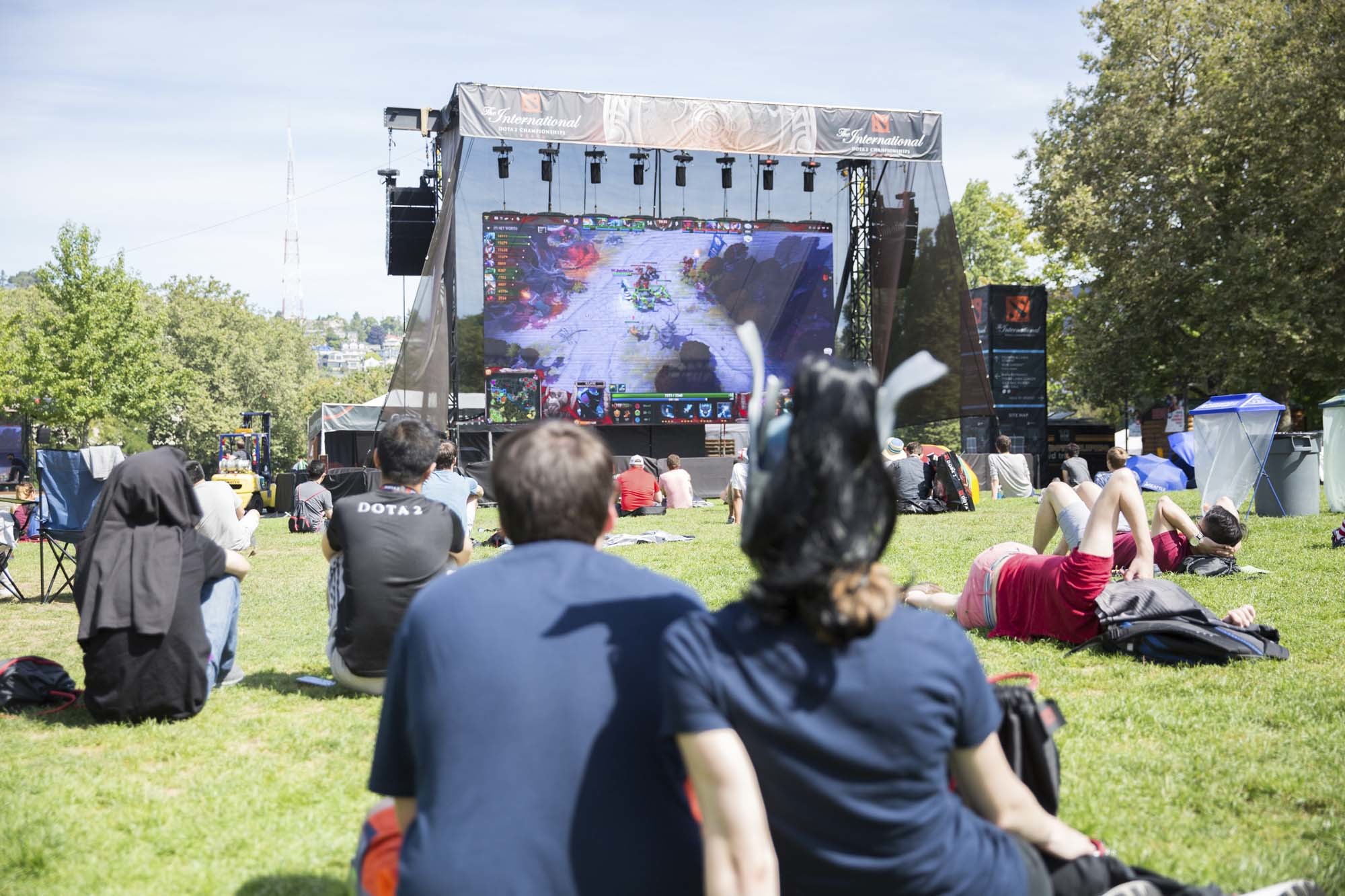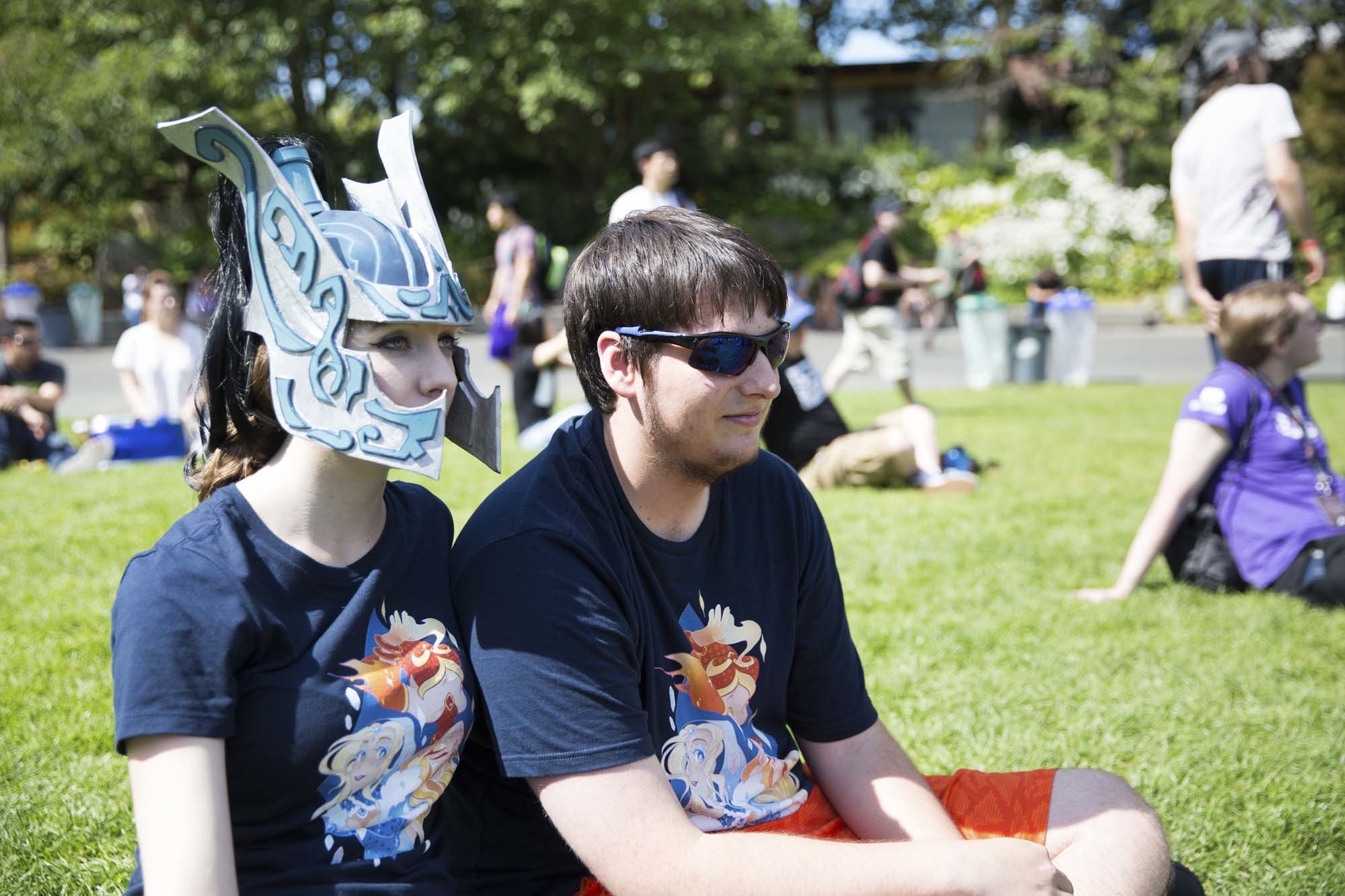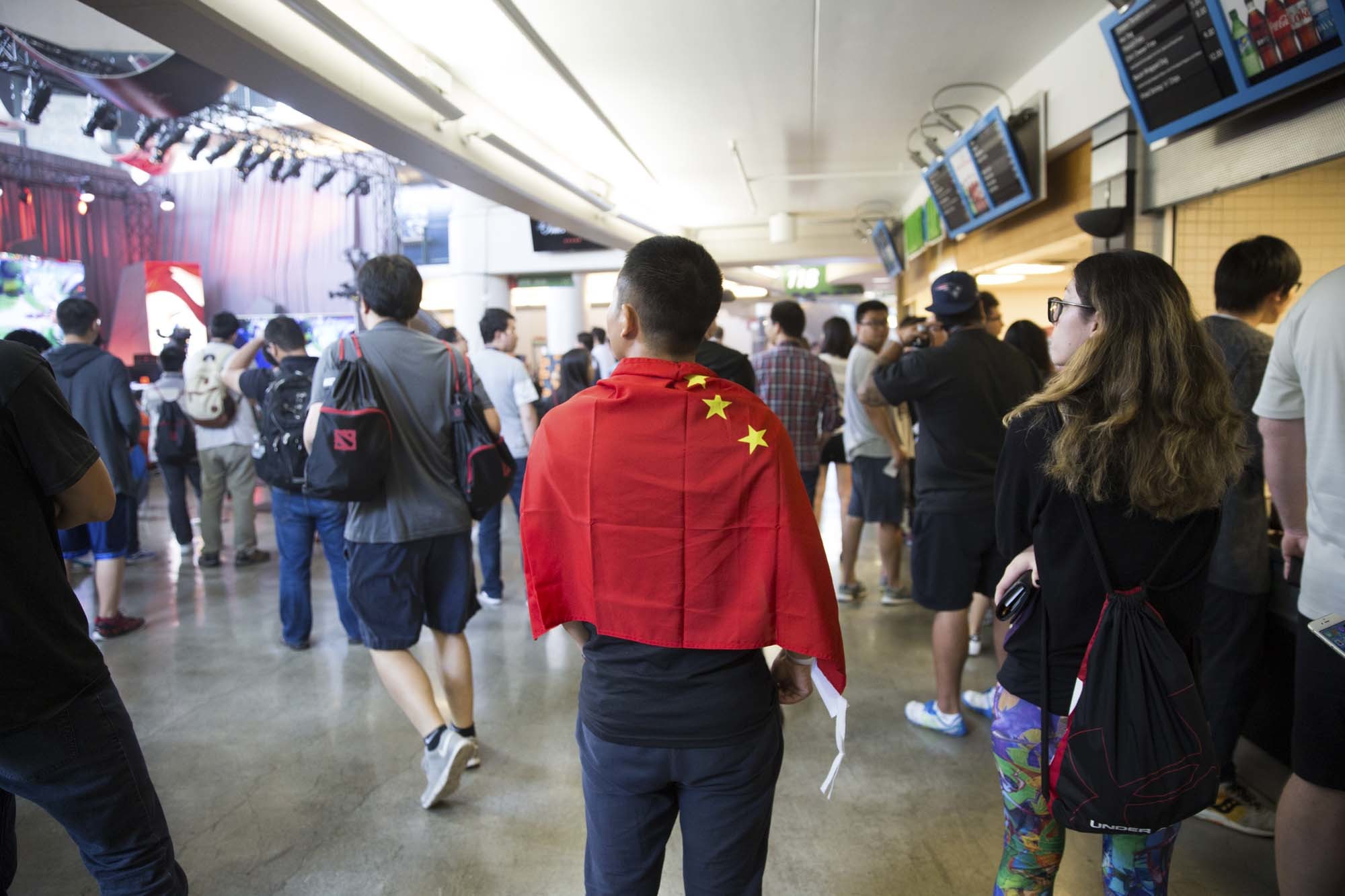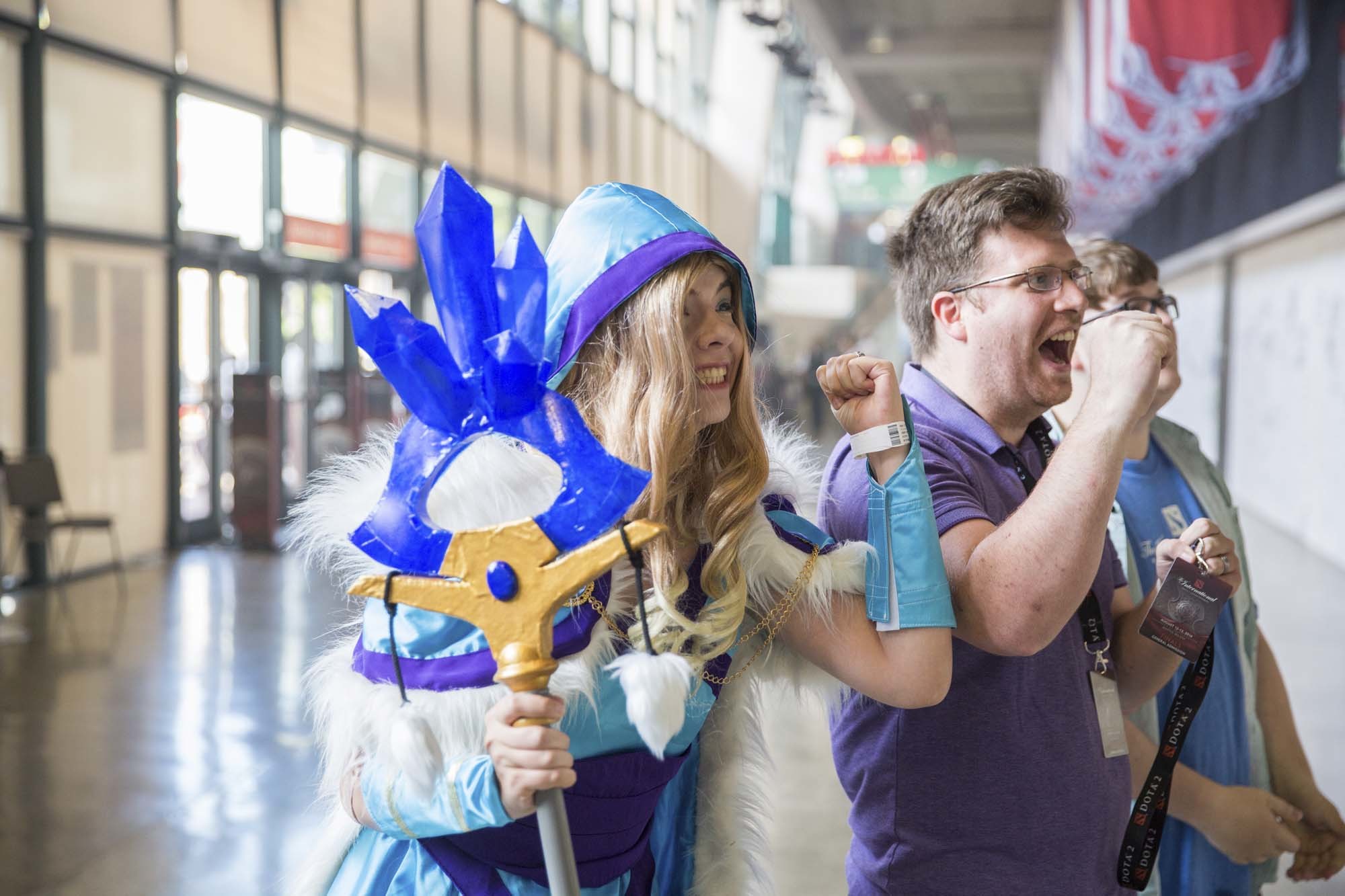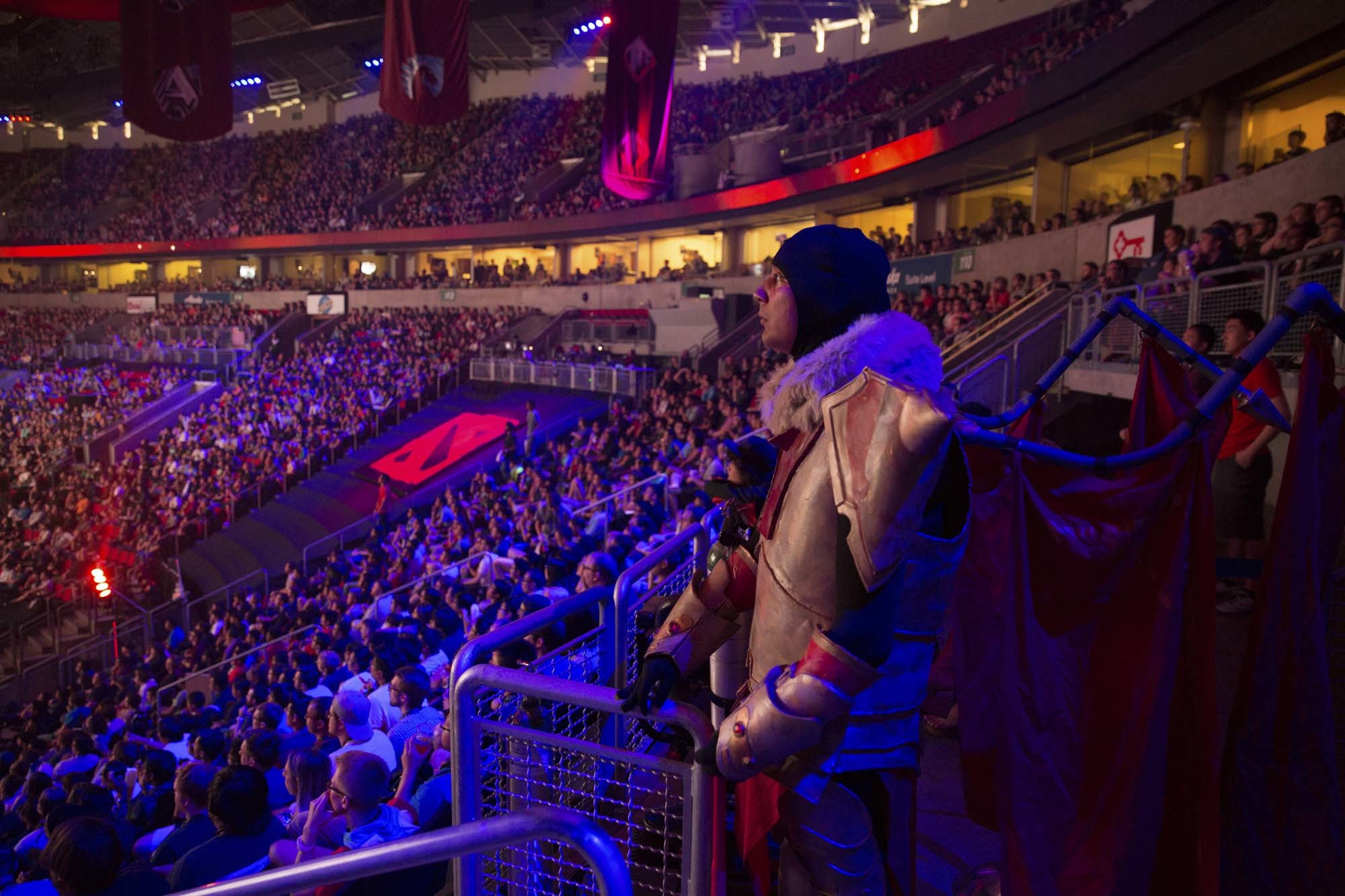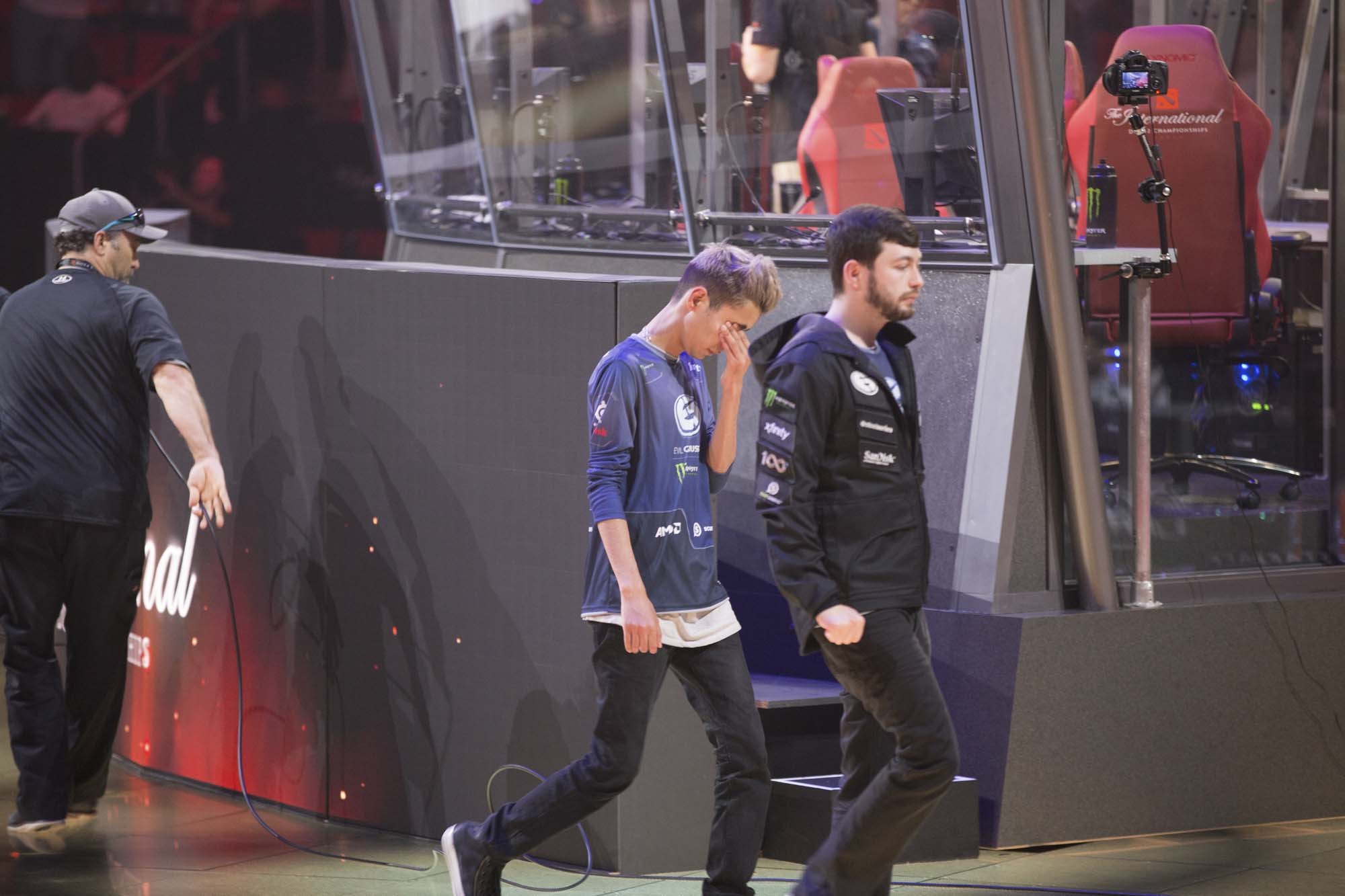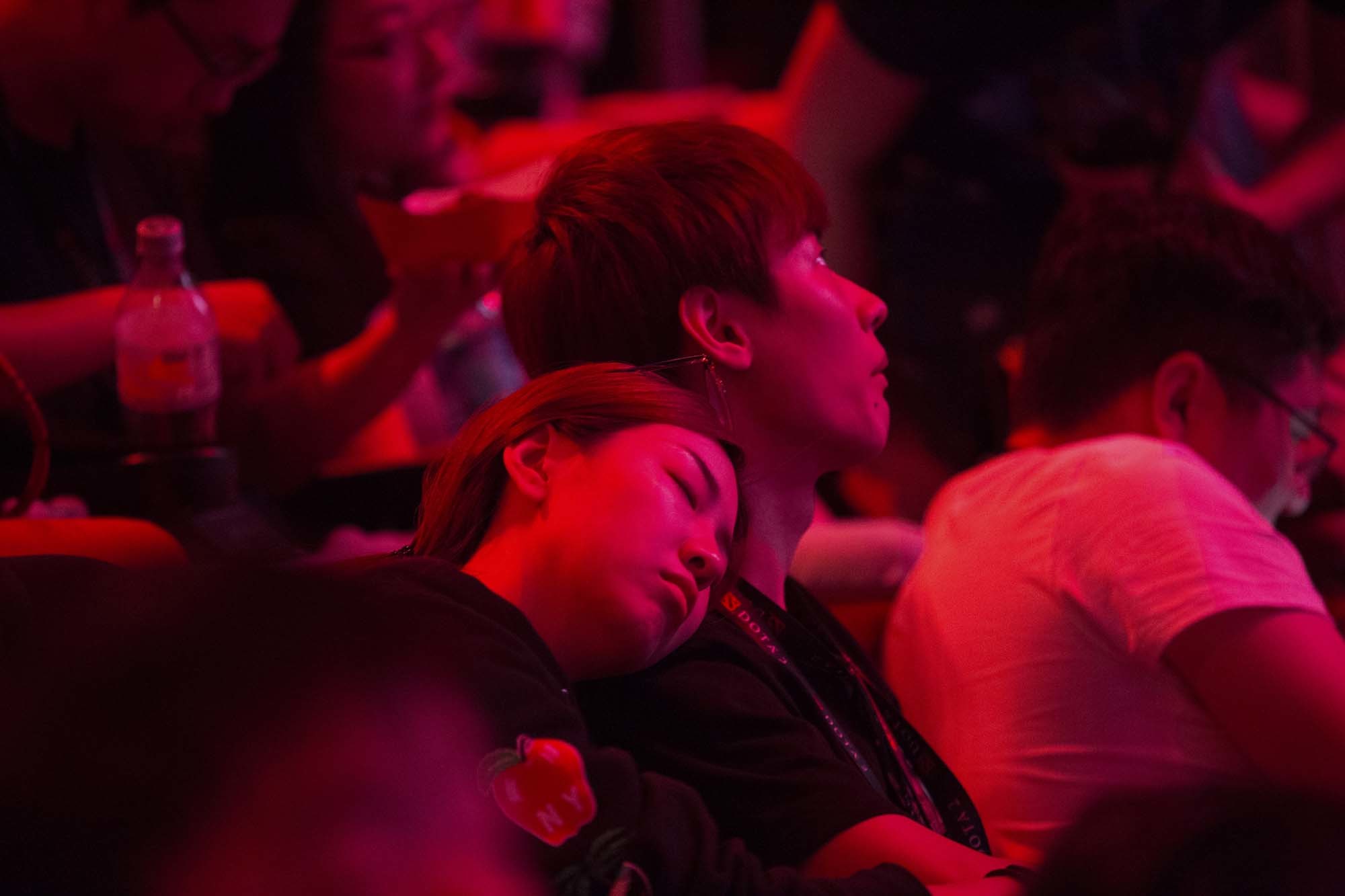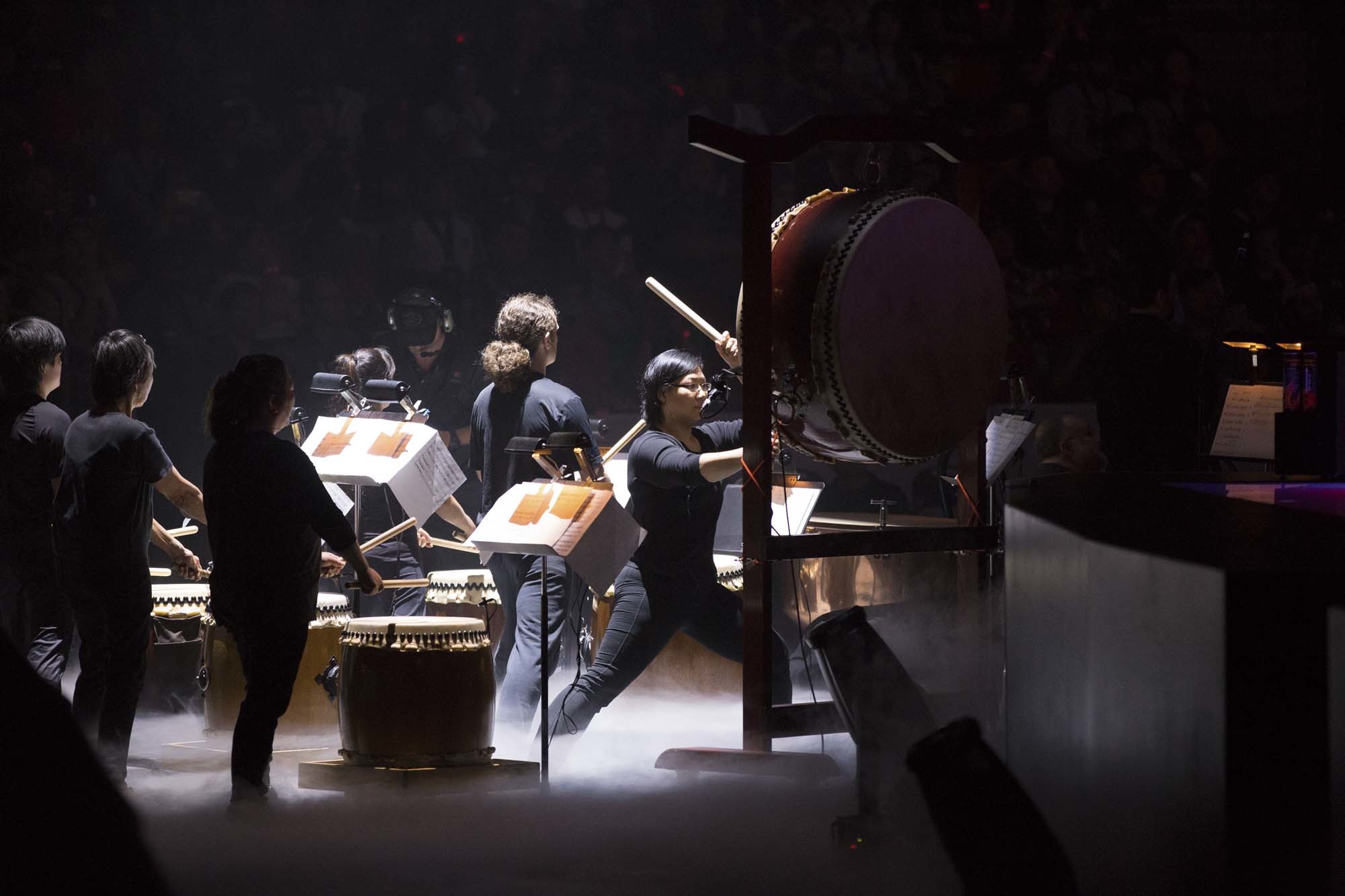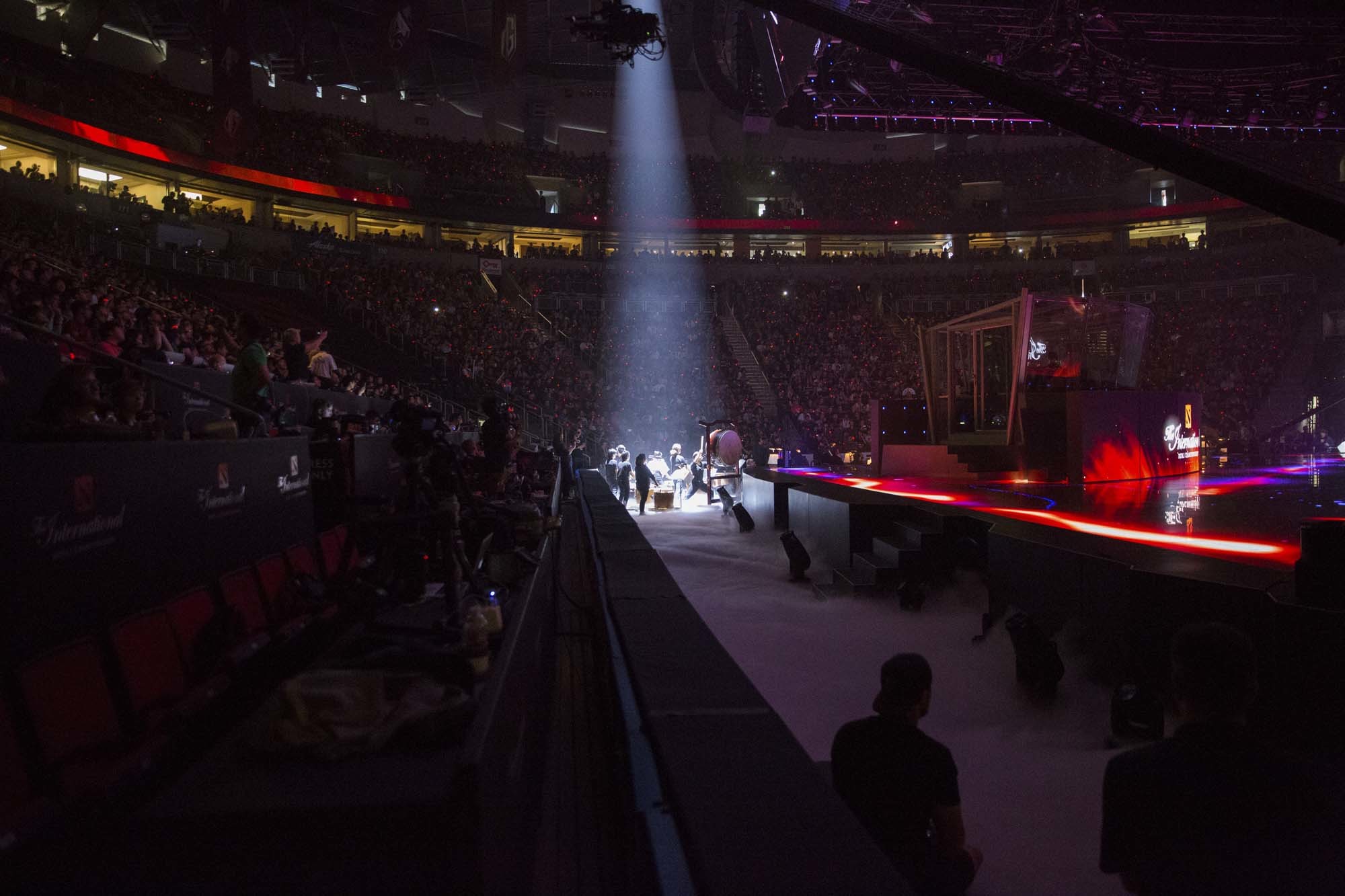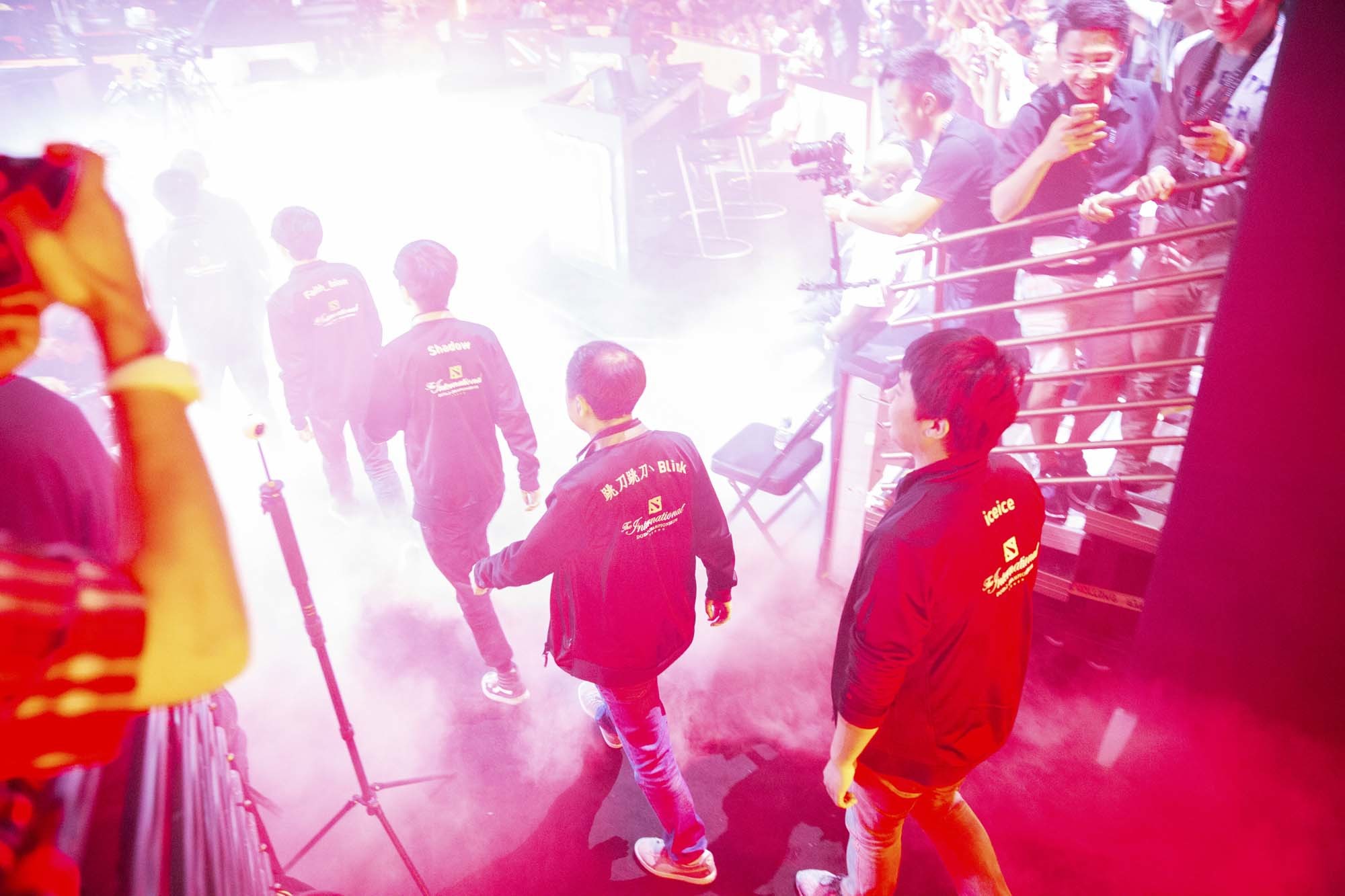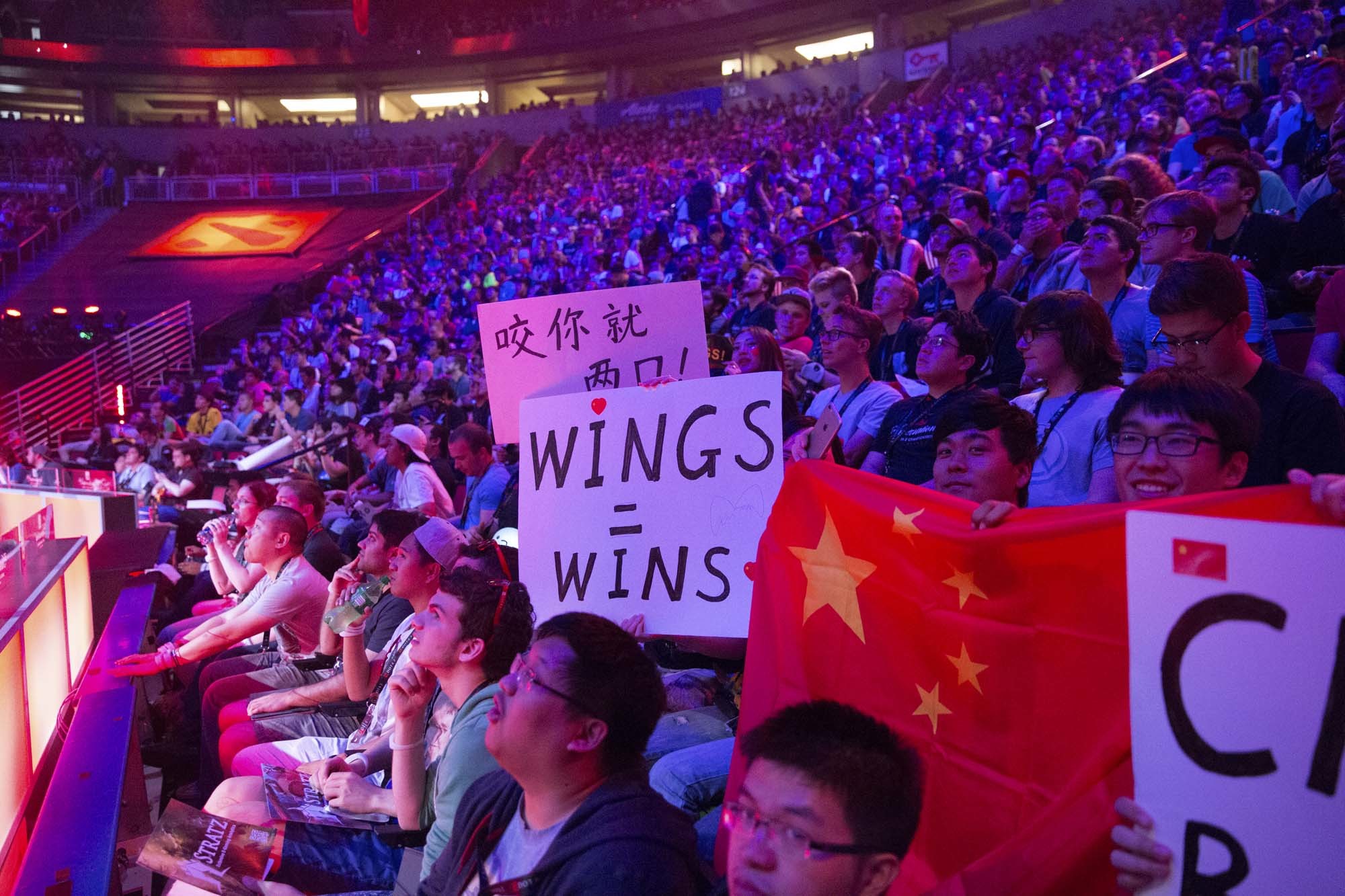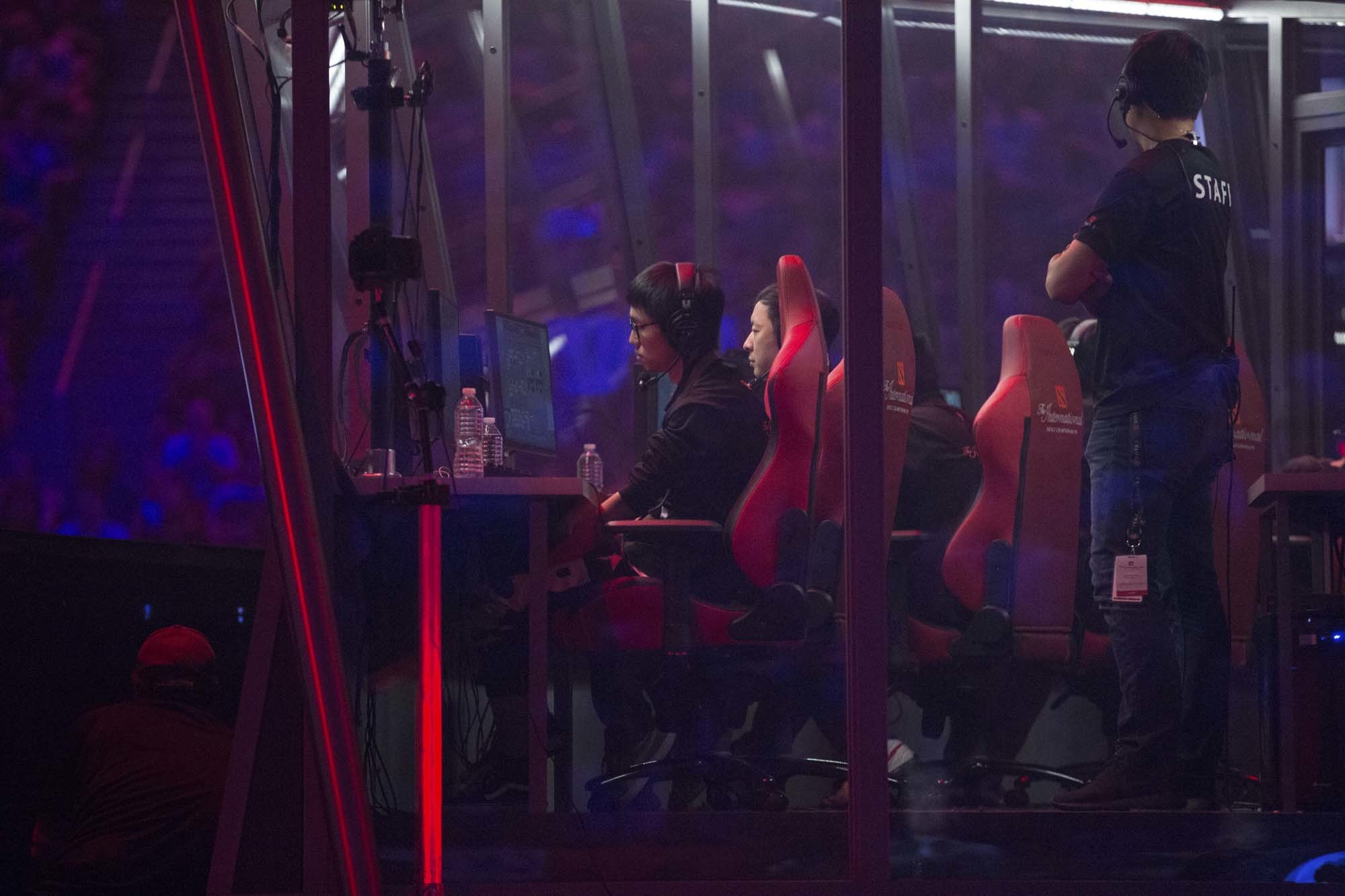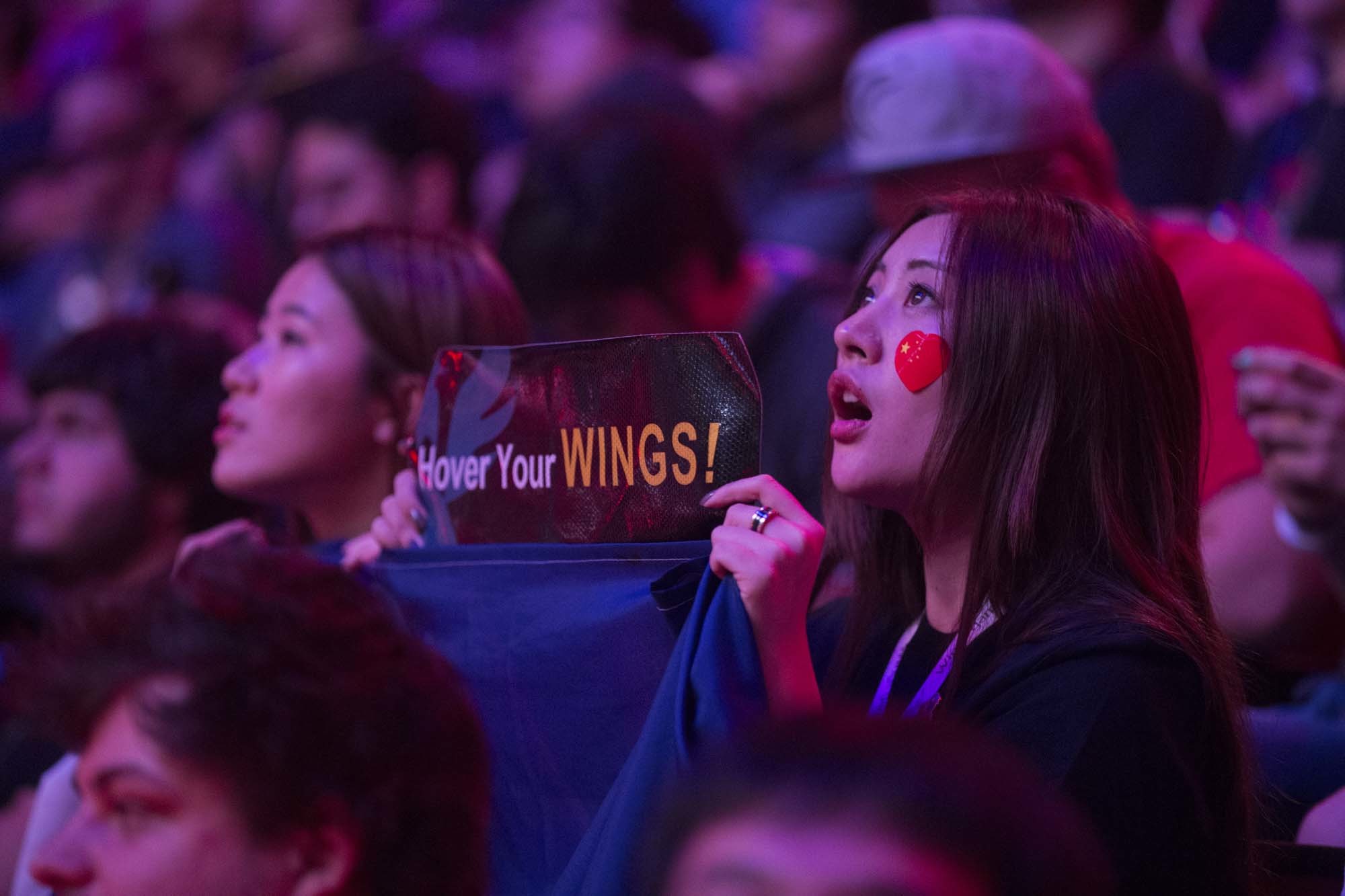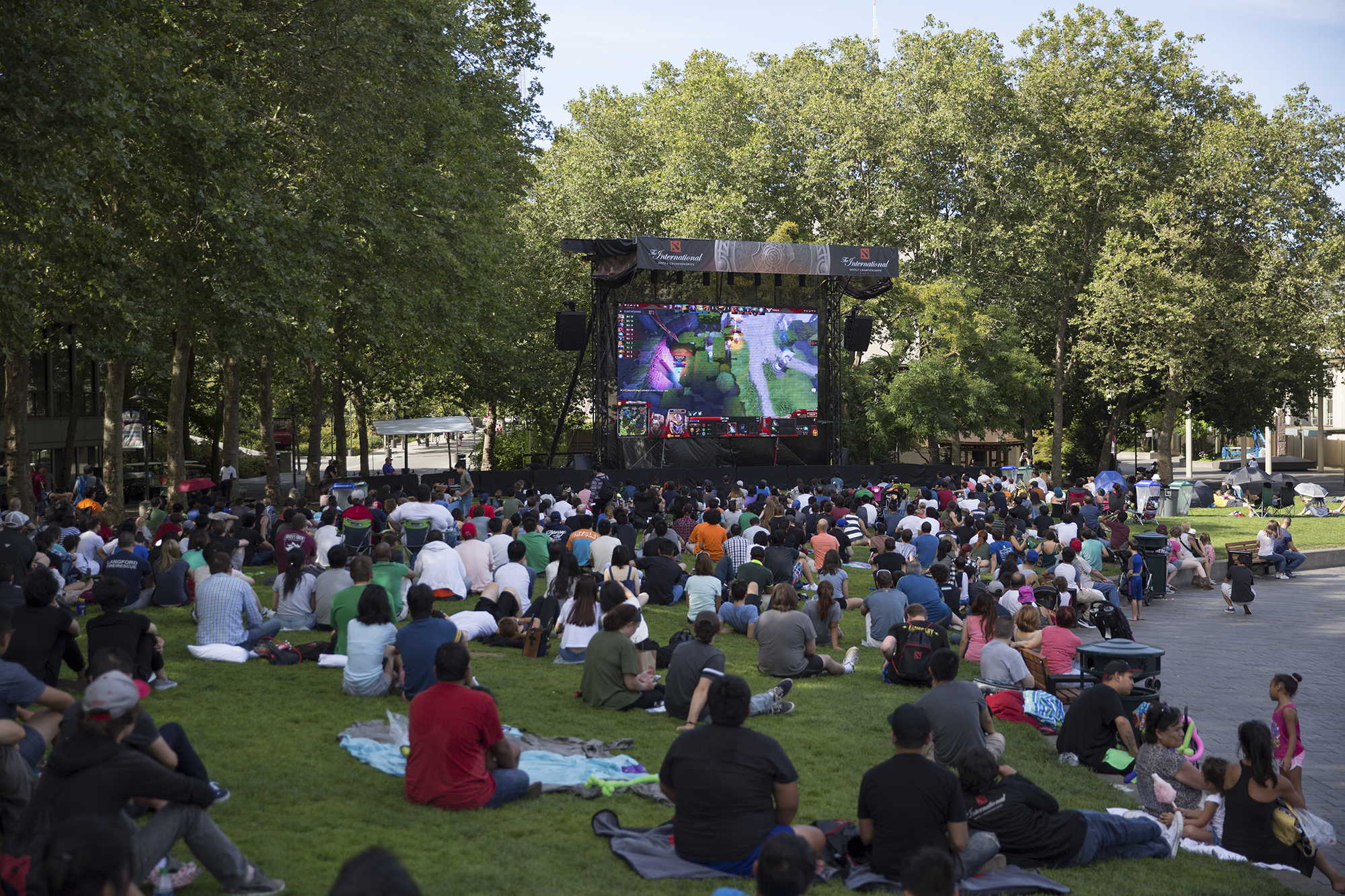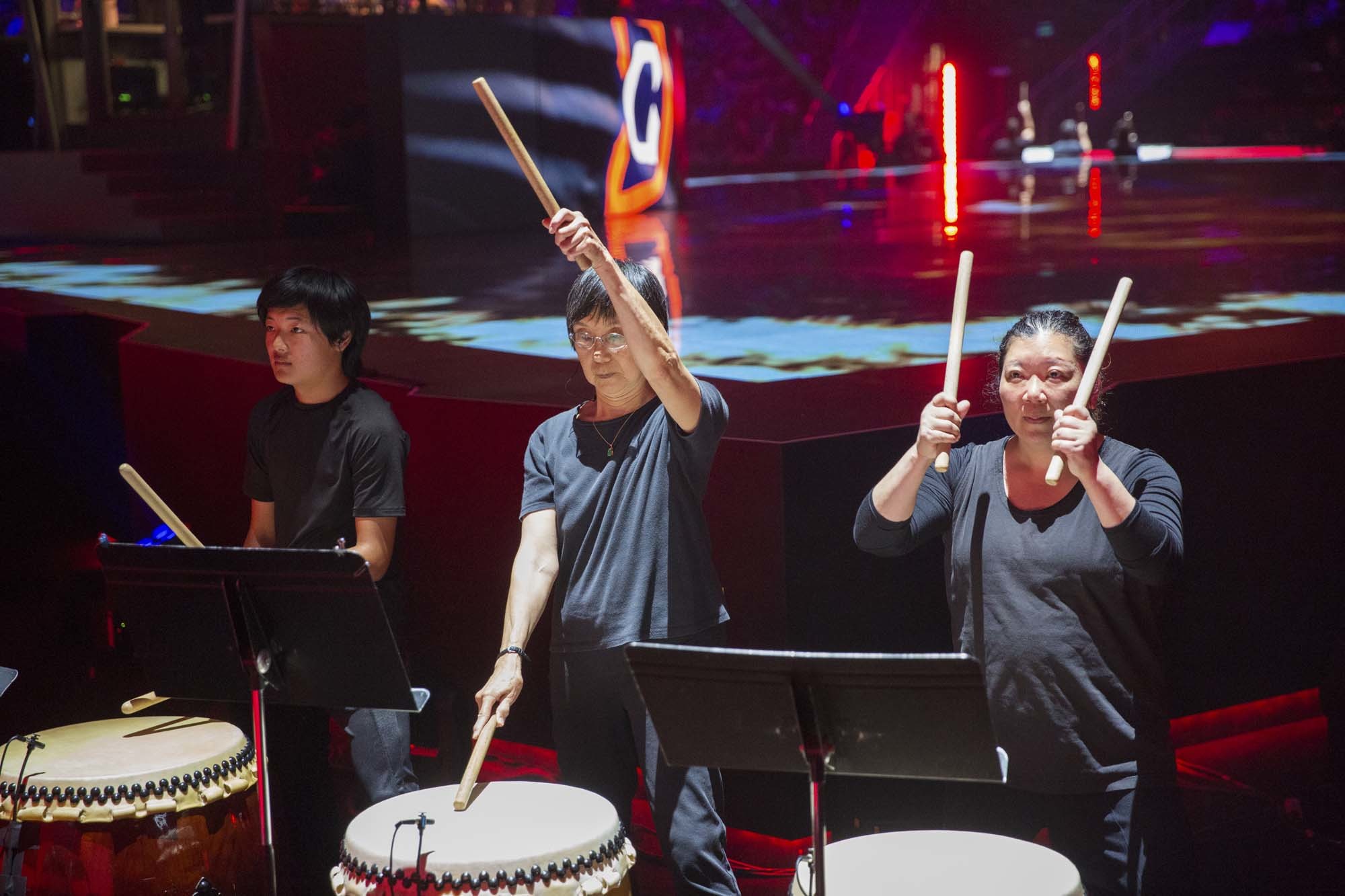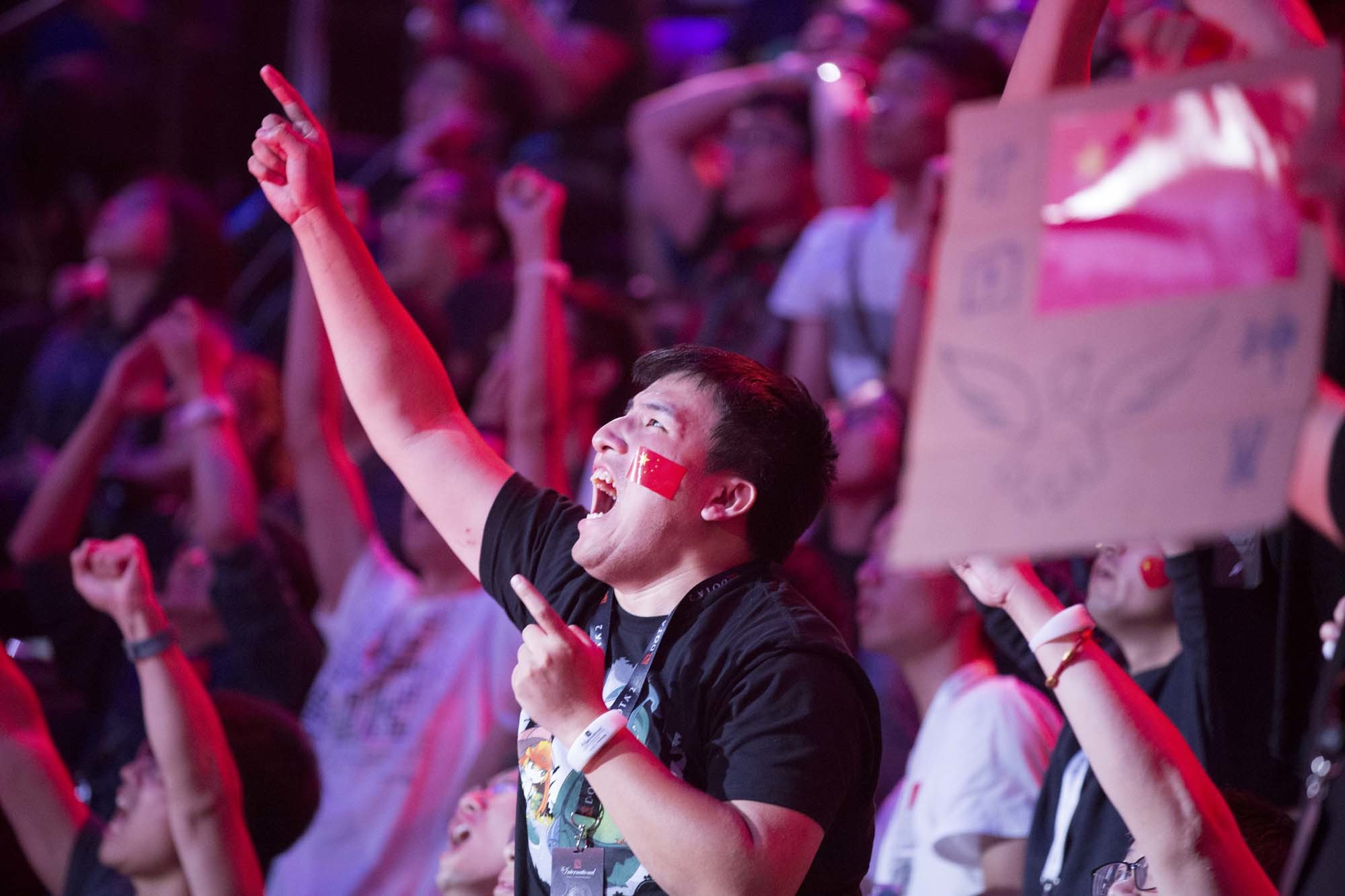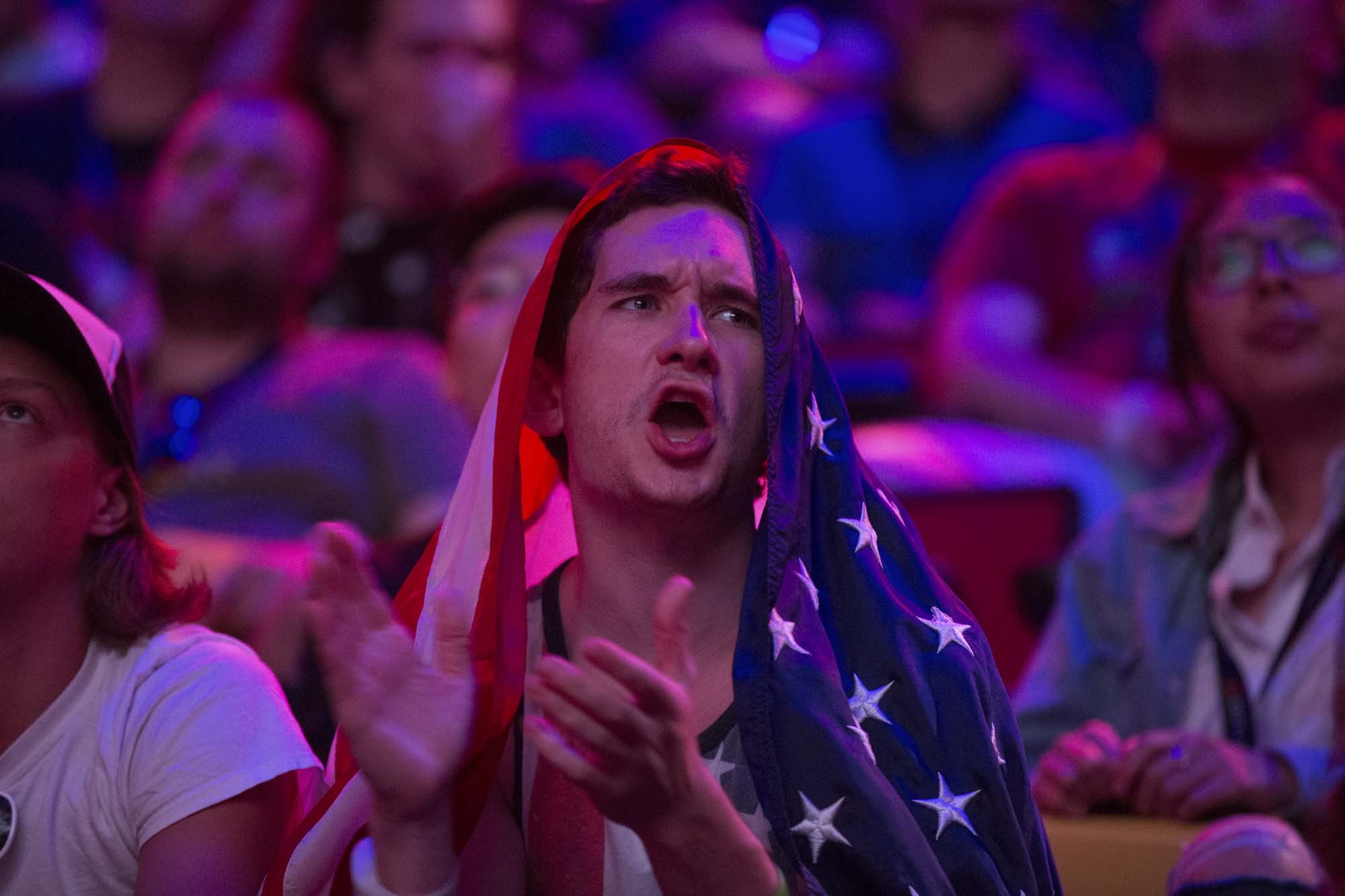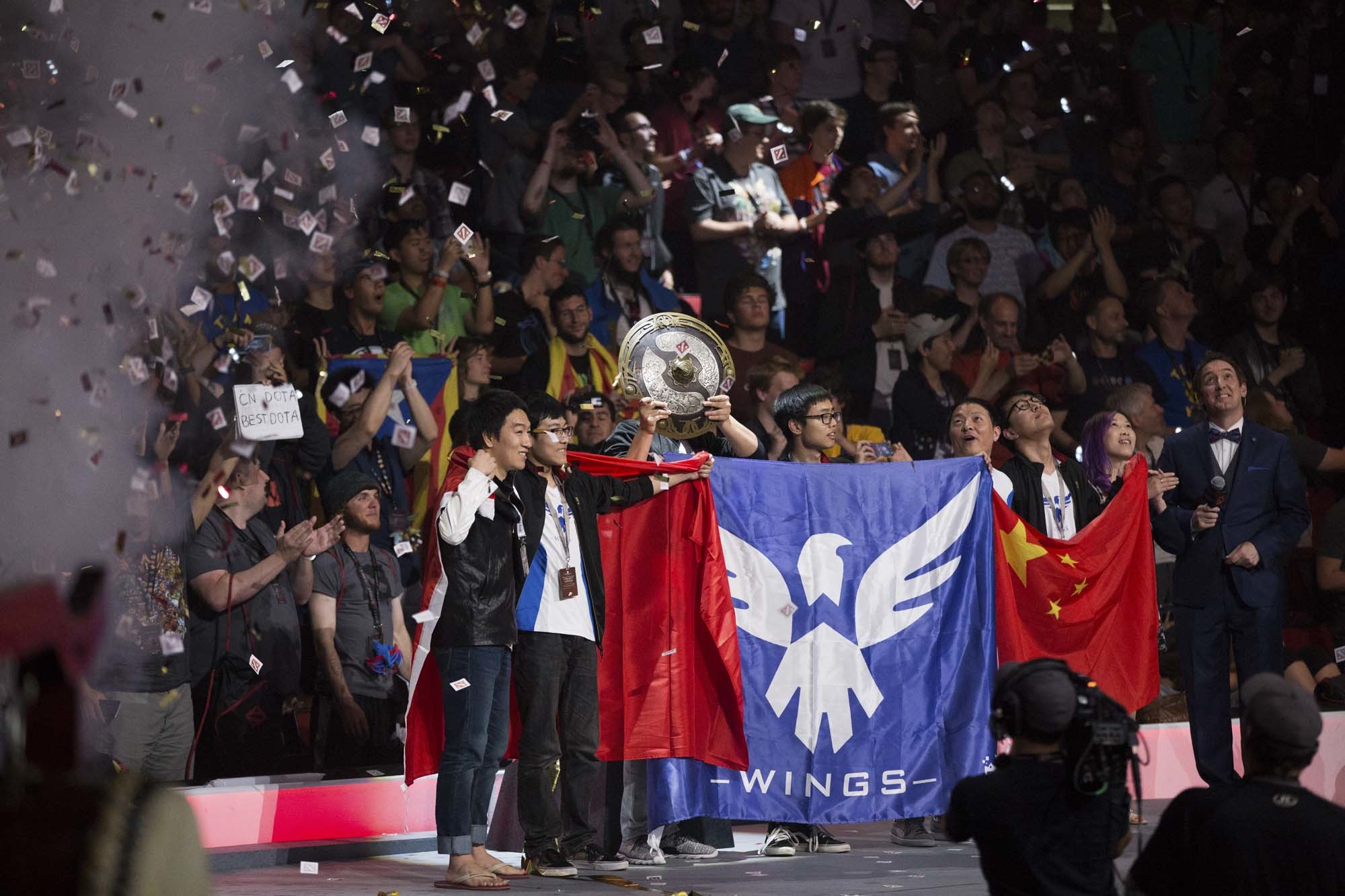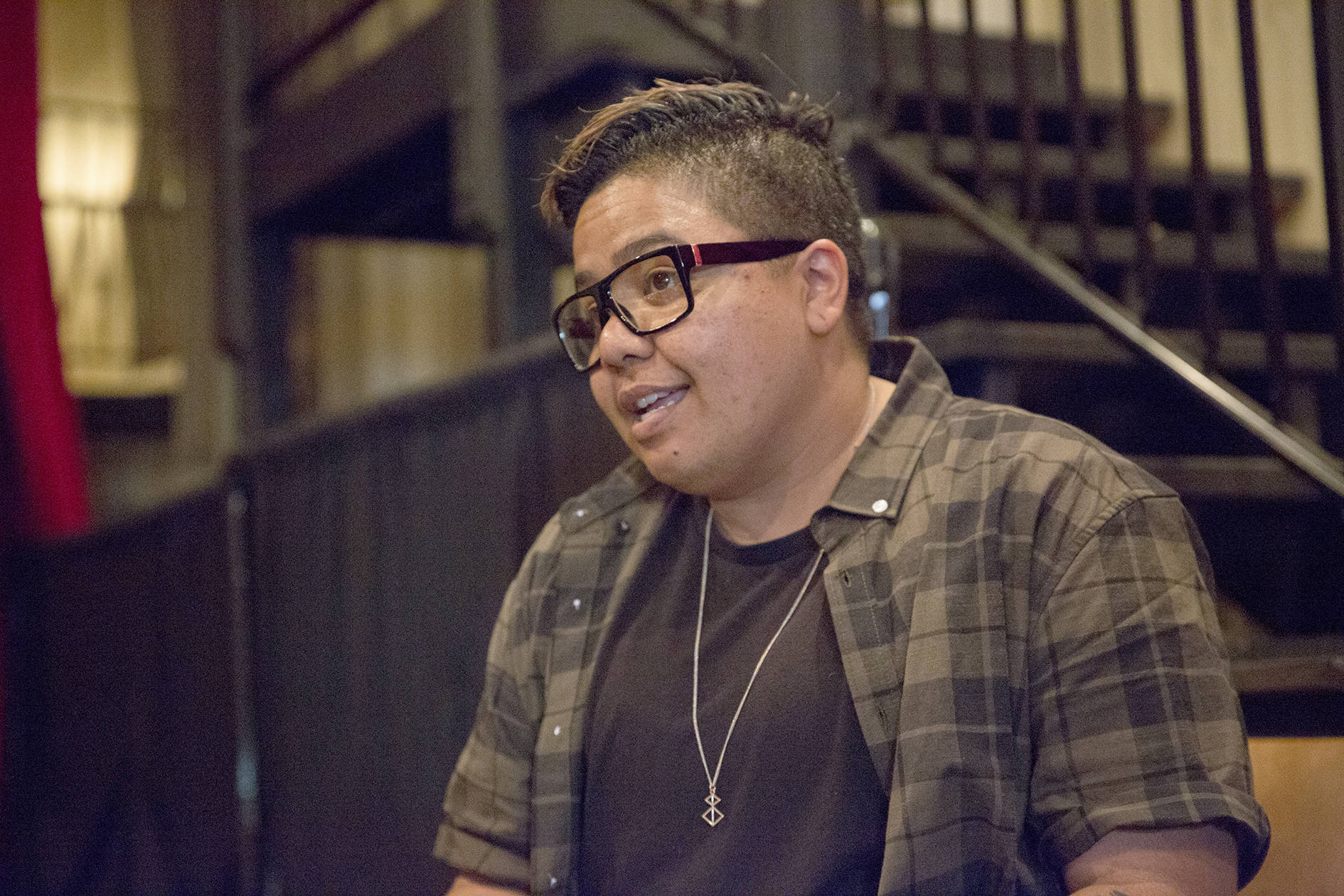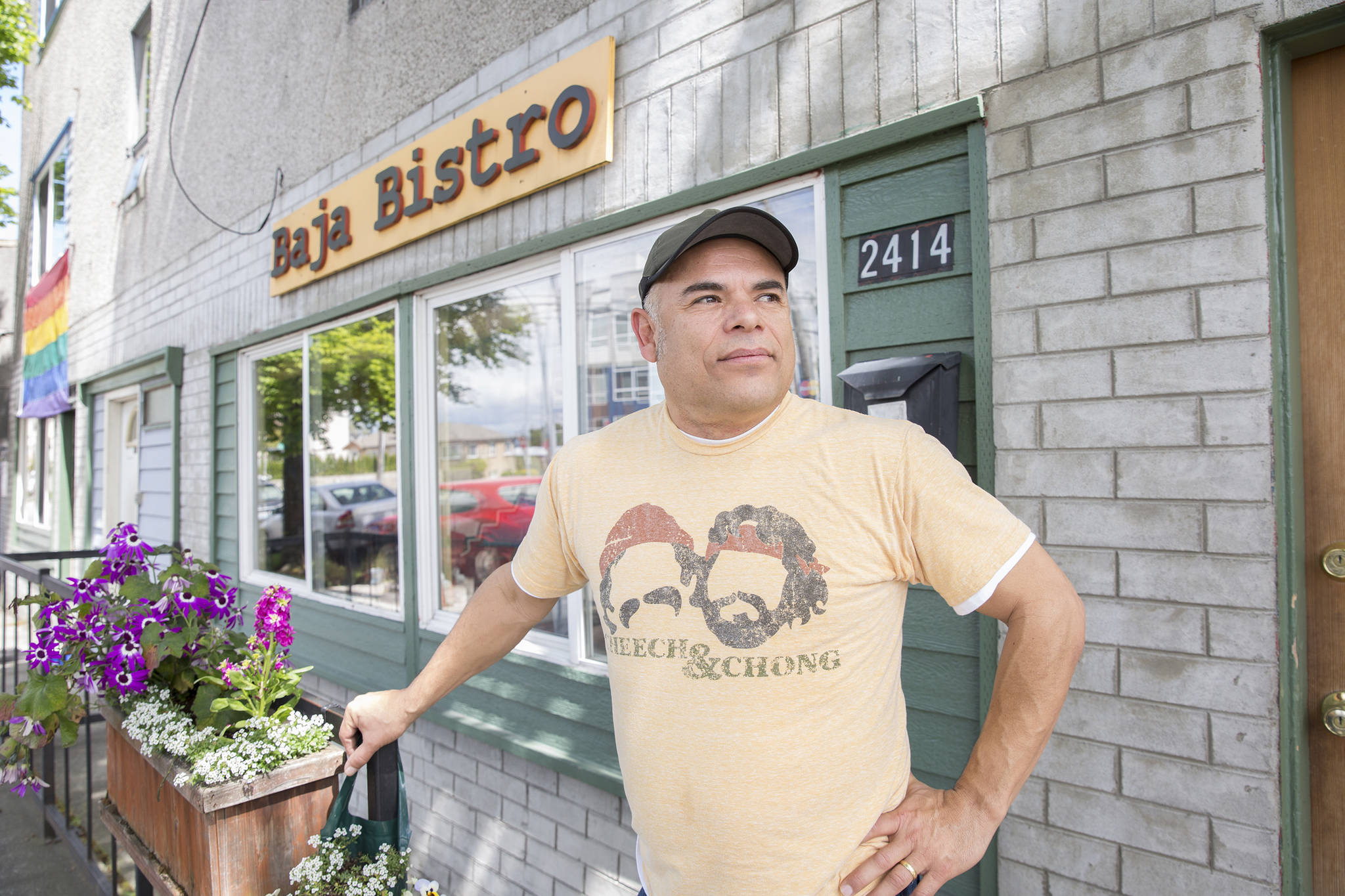When Ben Wendlendt first started traveling from his home in Illinois to competitive video-game tournaments around the country, back around 2012, he says his parents were a bit perplexed.
“Are you going to play?” they’d ask. No, he’d tell them, just watch.
That is what the 24-year-old was doing at Seattle Center on Saturday during the Grand Final of The International, an annual week-long competition built around the video game Dota 2, held at KeyArena. These days, he says, his parents have come to accept the idea that video gaming can be a spectator sport—them, along with everyone else.
“It didn’t use to be this crazy,” says Wendlendt, an American flag draped over his shoulders. “It was a lot smaller. I feel like people are getting more used to the idea of video games as a competitive sport.”
Hosted by local video-game developer Valve, The International this year attracted gamers from around the world to compete for the largest prize pool ever seen in an eSports competition: $20,770,460.
All last week, KeyArena was abuzz as thousands of fans packed the stands to watch the world’s best players compete for the grand prize. Locals were present, but some fans made The International their summer vacation destination, planning days around their favorite teams. Veronica Solomon of Bakersfield, Calif., came with her husband. While Solomon has yet to “build up the courage to play,” she says she really enjoys watching others compete in the game. “There’s so many different things you can do in the game,” Solomon says. “You can’t just do one thing and win. There’s so much to learn and I like to learn about it. It’s not ever the same.”
The tournament’s roots go back to 2011, when Valve hosted its first eSports competition in Germany shortly after releasing Dota 2, a sequel to Defense of the Ancients, which was itself a variation on the popular game Warcraft III. The next year the tournament was moved to Seattle, just across Lake Washington from Valve’s Bellevue headquarters. The tournament quickly grew out of its first home at 2,500-capacity Benaroya Hall, and in 2014 graduated to the 17,500-capacity KeyArena.
Filling the largest indoor venue in the city hasn’t been a problem. The thousands of tickets for Saturday’s final event sold out in minutes, filling the arena with players and fans who watched on large screens as teams of five battled on their keyboards for the chance to win almost $2 million each. In the end, Wings Gaming, a well-known team from China, took home the grand prize of $9.1 million dollars.
Passion for the game crosses borders, with more than 15 countries represented among the competition’s 18 teams. Some, like Wings Gaming, comprise players from one country; others include players from Denmark, Poland, Canada, Jordan, and Israel working together. An international fan base follows, some flying in from China, South Korea, Russia, and throughout the U.S.
A man named Egor came with friends from St. Petersburg. Another, Qui Cho, goes to school in Oregon but is originally from China, and finds that “Dota 2 is the best game” for him.
While not everyone could get a ticket inside the event, fans were still able to watch outside KeyArena. Two massive screens were set up for spectators near Fisher Pavilion and the International Fountain. Fans who couldn’t travel to Seattle could watch the event on Dota 2’s website or on Twitch.tv, an Amazon-owned website that specializes in competitive gaming coverage.
One tournament attendee, Jacob Rapoport, founder of RumbleMonkey, a local eSports startup, said he sees a future in competitive gaming beyond the annual competitions. “The world of eSports is ever-changing, and new games gain fans while older games continue to grow followings,” he says. “Imagine if soccer, a game most of the world can understand, could be played professionally by anyone with the time and passion for the sport, regardless of physical ability. Now imagine that you’re watching players in a stadium that can die 20 times, come back to life, spit fire at the other team, and win nine million dollars.
All of this is possible and more. It’s abundantly clear when you see KeyArena completely filled with young adoring fans, screaming for their favorite teams, that this is the future of sports. The possibilities are endless.”
The International is not without its critics, even inside the arena. Of the tournament’s 90 competitors, all are men, which doesn’t escape the notice of some of the many women in the crowd.
“There are female players, like myself, but there are a lot of gamers out there who think that females shouldn’t be video gamers,” says Bethany, a Victoria, B.C.-based gamer who arrives at the final dressed as Dota 2 character Crystal Maiden. “That’s changing. The amount of females in the crowd are significantly higher than previous years.”
Azure Zebu, who asks to use her Dota 2 handle, made the trip from Nebraska, where she finds time to play while going to grad school. “The gender bias doesn’t affect me as much, because I’m a woman in science,” she said. “I have to overcome that type of stigma all the time, and so, yeah, there’s a lot of guys, but I’m not going to let that bug me. I think it would help if there were more role models for women.”
Charlie Tucker, from Michigan, thinks things are changing when it comes to women in eSports. “I think there’s lots of girls that play video games; they just don’t get a chance to really show themselves as much,” she says. “As awesome as the community is, they can be unfriendly towards women. Hopefully one day we get a girl in The International. I think that’s where we’re headed.”
Gender divide aside, the competition in Seattle proves beyond a doubt that competitive video games are firmly in the mainstream. Nikki Cornell and Robin Palmer drove from Fresno, Calif., with their children. They aren’t players themselves, but see the rise in popularity as an indication of where we are heading as a society. “We’ve been having lots of discussions about school and video games and how do we find the balance,” Palmer says.
She adds that her children are planning to start an eSports team at their Catholic high school.
“A lot of parents are so afraid of video games because they feel like it isolates them, but these kids spend so much time hanging out with each other and enjoying something together,” Palmer says. “It’s just a different way of socializing.” n
